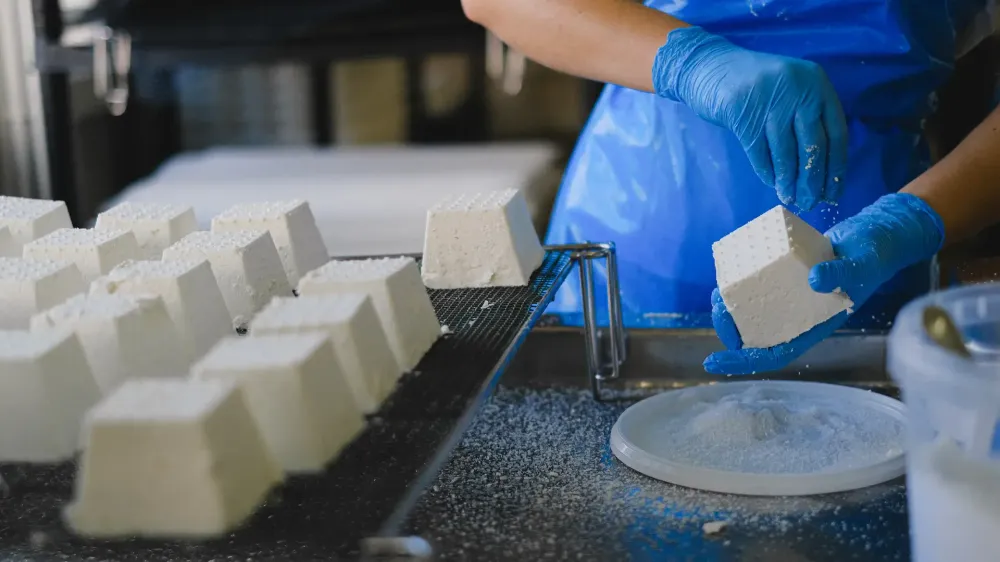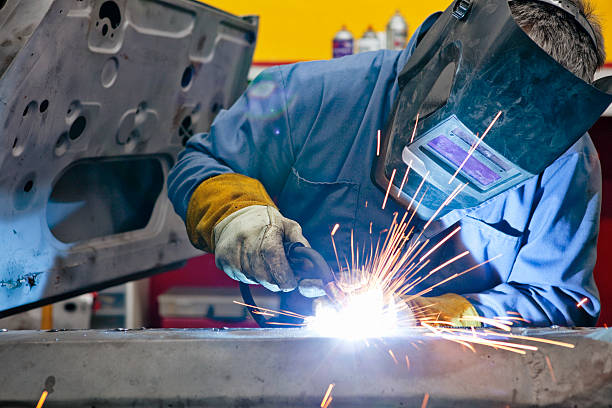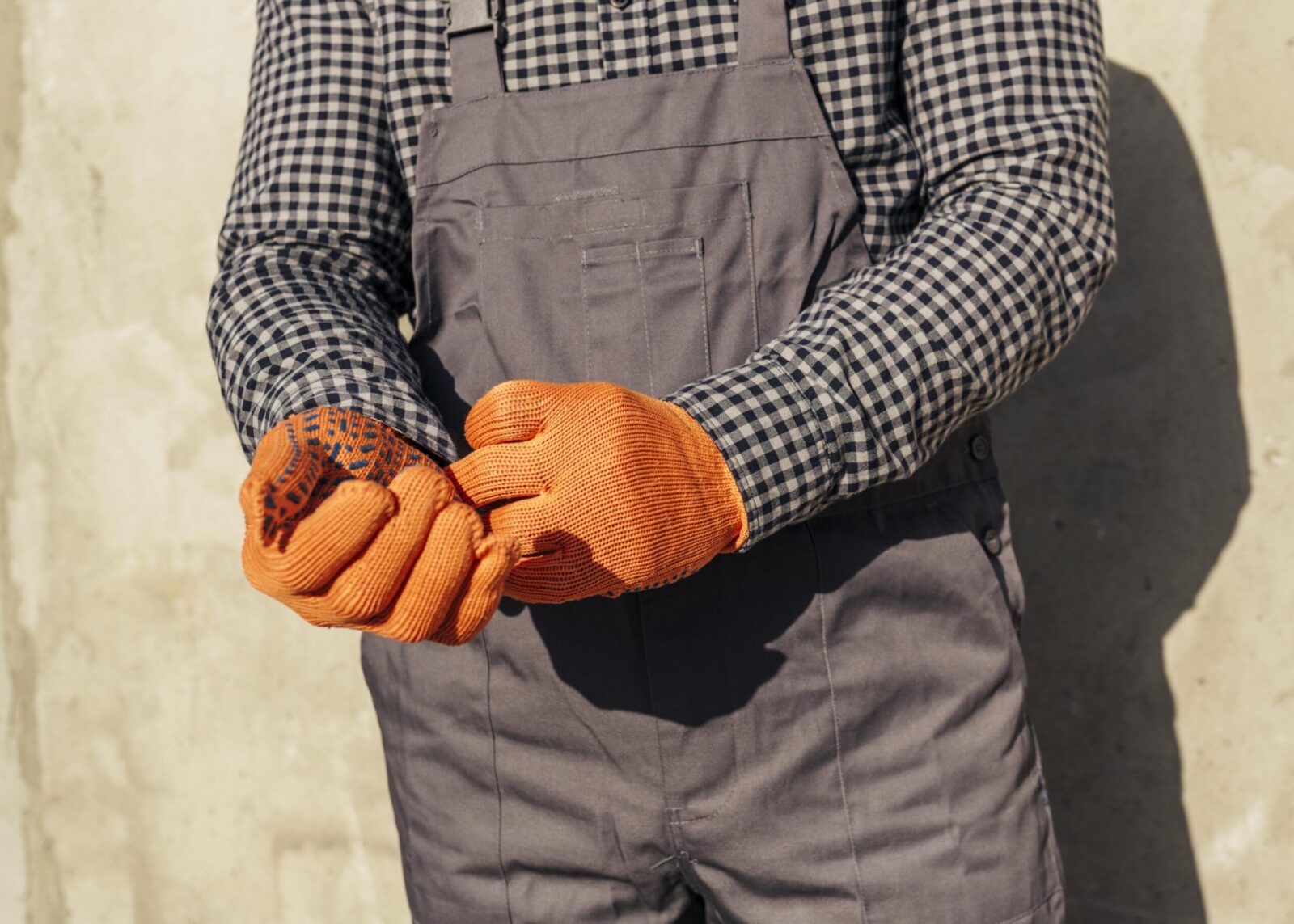
Klasser för isolerande gummihandskar: en guide till spänningsklassificeringar och skyddsnivåer
Att välja rätt isolerande gummihandskar kan vara knepigt, men det är avgörande för din säkerhet. Den här guiden hjälper dig...


Få 100 Kr rabatt på första köpet!
Säkerheten på arbetsplatsen är av högsta prioritet i alla branscher, och välinformerade beslut om personlig skyddsutrustning (även kallad PPE) är av största vikt – särskilt när varje industriell miljö har sina egna potentiella risker.
Handskar är en av de viktigaste personliga skyddsutrustningarna i alla industriella branscher, eftersom de utgör en barriär mellan arbetarnas händer och farliga ämnen, t.ex. kemikalier, vassa föremål, värme eller kyla och andra farliga material.
Det finns olika typer av handskar på marknaden och de tillgodoser ett stort antal användningsområden. Huvudkategorierna för skyddshandskar är latex, nitril och vinyl.
I den här artikeln fokuserar vi på vinylhandskar och går igenom fördelarna med att göra dem till en självklar del på din arbetsplats, hur du väljer rätt modell för dina användningsområden och hur du ser till att dina vinylhandskar uppfyller EU:s förordningar om personlig skyddsutrustning.
Låt oss börja med att säga att vinylhandskar är en kostnadseffektiv lösning för industrisäkerhet, som ger skydd för arbetare utan att bryta budgeten. Det är därför de blivit ett populärt val i många branscher.
Så oavsett om du vill skydda dina anställda eller följa branschreglerna, är vinylhandskar ett pålitligt alternativ som kan ge sinnesro och skydd.
Med detta i åtanke ska vi dyka djupare in i allt som har med vinylhandskar att göra. Dessa är de tre avsnitt som vi kommer att behandla:

Låt oss utforska de viktigaste fördelarna med att lägga till vinylhandskar i ditt lager, från kostnadseffektivitet till komfort och mångsidighet.
Om du vill se till att dina anställda har rätt verktyg för att hantera en mängd olika uppgifter i total komfort, så är kvalitet naturligtvis något som du inte kan kompromissa med.
Kvalitet behöver dock inte kosta för mycket. Jämfört med andra material som latex eller nitril erbjuder vinylhandskar en hög skyddsnivå till en lägre kostnad. Detta gör dem till ett attraktivt alternativ för grossisthandlare som vill skydda sina anställda samtidigt som de håller kostnaderna i schack.
Genom att välja vinylhandskar kan du spara pengar på handskydd samtidigt som du förser arbetstagarna med nödvändig säkerhetsutrustning. Detta kan följaktligen frigöra resurser för andra viktiga förnödenheter.
Vinylhandskar är välkända för sin höga flexibilitet och komfort, vilket gör dem till ett populärt val för arbetare som behöver bära handskar under långa perioder.
Till skillnad från andra material som kan vara stela och begränsande är vinylhandskar utformade för att vara elastiska och ge full rörelsefrihet. Självfallet hjälper vinylhandskar med hög komfort arbetstagarna att utföra sina arbetsuppgifter på ett effektivt och ändamålsenligt sätt, vilket leder till ökad produktivitet.
Vinylhandskar kan användas för många arbetsuppgifter inom olika branscher, till exempel:
På det hela taget kan vinylhandskar vara en lämplig lösning, oavsett om du vill skydda arbetstagare inom livsmedelsproduktion, ett laboratorium eller en tillverkningsanläggning.
Du har bestämt dig för att vinylhandskar är rätt personlig skyddsutrustning för ditt användningsområde och du söker nu efter olika alternativ, kanske svarta vinylhandskar eller skyddshandskar engångs.
Självklart kommer du att undra: “Hur kan jag identifiera de bästa vinylhandskarna för mitt användningsområde?”.
Ditt beslut bör baseras på fyra kriterier: kvalitet, storlek och passform, puderfria alternativ och säkerhetsbetyg.
Låt oss dyka djupare ner i var och en av dem.
Med vikten av säkerhetsklassificering i åtanke ska vi nu ta en närmare titt på EU:s förordningar om personlig skyddsutrustning och se hur de säkerställer vinylhandskars säkerhet och kvalitet.
När du köper in vinylhandskar från kataloger är det viktigt att se till att produkterna uppfyller de regler och standarder som fastställs i EU:s förordning om personlig skyddsutrustning (EU) 2016/425.
I denna förordning fastställs de grundläggande säkerhetskraven för personlig skyddsutrustning och det säkerställer att den personliga skyddsutrustning som tillhandahålls på marknaden är av hög kvalitet och ger ett tillräckligt skydd för det aktuella användningsområdet. Du kan läsa mer om detta i vårt tidigare blogginlägg: Säkerställande av säkerhet och efterlevnad: En titt på EU:s förordningar om industriell personlig skyddsutrustning.
Att välja vinylhandskar som uppfyller PPE-förordningar och standarder är avgörande för att garantera arbetarnas säkerhet.
Dina vinylhandskar måste vara tydligt märkta med information så som tillverkarens namn, typ av handske (t.ex. vinylhandskar allergi) och eventuella relevanta varningar eller försiktighetsåtgärder.
Dessutom måste personlig skyddsutrustning kunna spåras från tillverkare till slutanvändare, och därför bör förpackningen innehålla all nödvändig spårbarhetsinformation som SKU, tillverkningsdatum, produktionsanläggning och landskod (detta gör det lättare att identifiera produkten i händelse av problem eller återkallelse).
Slutligen ska du alltid vara uppmärksam på vinylhandskar som tillverkas utanför EU, eftersom de kanske inte uppfyller EU:s förordningar och standarder för personlig skyddsutrustning. Som en tumregel är det också alltid viktigt att kontrollera om det finns en CE-märkning genom vilken tillverkaren förklarar att produkten har testats och uppfyller de grundläggande säkerhetskraven inom det Europeiska ekonomiska samarbetsområdet (EES).

Vinylhandskar är en ekonomisk lösning för industrisäkerhet, som skyddar arbetstagarna samtidigt som kostnaderna hålls nere. Därför blir de alltmer populära inom olika branscher.
Förutom att vara budgetvänliga är vinylhandskar kända för sin komfort och mångsidighet, vilket gör dem lämpliga för långvarigt arbete och ett brett spektrum av användningsområden.
När du skaffar de bästa vinylhandskarna för ditt användningsområde är det viktigt att välja högkvalitativa artiklar som erbjuder rätt storlek och rätt säkerhetsklassificering.
Det är därför viktigt för professionella köpare att se till att deras inventarier av personlig skyddsutrustning (inklusive handskar vinyl) uppfyller de säkerhets- och efterlevnadsstandarder som föreskrivs i EU:s förordning om personlig skyddsutrustning (EU) 2016/425.
Vi förstår vikten av handskydd i professionella miljöer, och därför erbjuder vi ett brett urval av vinylhandskar av hög kvalitet från granskade europeiska leverantörer.
Ta en titt på vår omfattande katalog och upplev kvaliteten själv genom att begära ett gratisprov.
Tack! Du har registrerat dig för vårt nyhetsbrev.



















Att välja rätt isolerande gummihandskar kan vara knepigt, men det är avgörande för din säkerhet. Den här guiden hjälper dig...

Att välja rätt bågflamshandskar är avgörande för att säkerställa din säkerhet i högriskmiljöer som elektriskt underhåll eller byggarbete. I denna...

Letar du efter rätt elektriskt isolerade handskar för att säkerställa din säkerhet? Den här guiden hjälper dig att förstå EN...

Att välja rätt isolerande gummihandskar kan vara knepigt, men det är avgörande för din säkerhet. Den här guiden hjälper dig...

Att välja rätt bågflamshandskar är avgörande för att säkerställa din säkerhet i högriskmiljöer som elektriskt underhåll eller byggarbete. I denna...

Letar du efter rätt elektriskt isolerade handskar för att säkerställa din säkerhet? Den här guiden hjälper dig att förstå EN...
Få 100 kr rabatt på din första beställning!
Spara 30 % genom att köpa direkt från dina favoritbrands och få ytterligare 100 Kr rabatt på beställningar över 1000 kr
Spara 30 % genom att köpa direkt från dina favoritbrands och få ytterligare 100 Kr rabatt på beställningar över 1000 kr